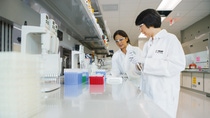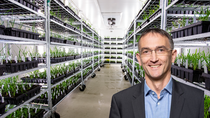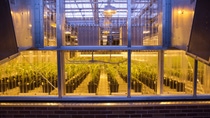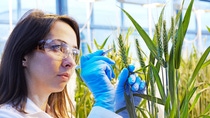Agriculture
Genome Editing: The Next Step In Plant Breeding Innovation
Plant breeding has always been an essential part of farming - bringing us new varieties and flavors, and equipping the plant with features to produce well within its local conditions. But breeding can become more precise and efficient with new techniques. Find out how genome editing can be used to support our food supply.
What is genome editing?
Genome editing is a technique to make precise and targeted changes to DNA. For agriculture, it can be applied to make food crops more resilient to local environmental pressures, like climate, diseases and pest pressure.
Gene or genome editing techniques — such as CRISPR-Cas9 — refers to a collection of techniques that are used to introduce specific and intended changes to the DNA in the genome of an organism. Methods of genome editing take advantage of naturally occurring DNA repair processes to introduce these targeted changes. Genome editing is different from genetic modification of organisms (GMO) in that no genes are transferred from one organism to another, rather precise and targeted and therefore, predictable changes are only made to native DNA. Certain outcomes of genome editing result in modifications that are similar to those that could be either found in nature or obtained by conventional breeding techniques.
How can genome editing help farmers, society, and the planet?
The benefits of genome editing overlap with the benefits of other conventional breeding techniques breeders use to create genetic variation to crops, like traditional breeding by crossing or mutation breeding. In various ways, breeders curate gene changes and their corresponding favorable characteristics together to make food crops more resilient to local environmental pressures, like climate, diseases and pest pressure. In turn, farmers with resilient crops will be able to grow more with less resources. Among many benefits, this lowers the conversion of natural land to farmland needed to meet the growing needs of our population. In contrast to conventional breeding techniques, and the reason for the excitement behind the technology, genome editing allows for substantial gains in efficiency when creating those well adapted crops. With precision genome editing techniques, like CRISPR-Cas9, breeders can deliver farmers more resilient, better adapted varieties in a shorter time frame than with conventional breeding techniques. This enables growers to address challenges faster and proactively as they emerge on the farm. Efficiency and speed are critical so that growers can produce enough resources for the growing population in the face of resistant pests and climate change.

Does BASF use genome editing to develop its seed and chemical products?
Genome editing tools represent the next step in biotechnology innovation and BASF plans to use this technology to gain knowledge and improve organisms with both agricultural and industrial applications. At this time, BASF does not have any products on the market developed using new genome editing methods. In seed research, teams continue to optimize both conventional and biotechnology plant breeding methods, including the use of advanced tools for genome editing such as CRISPR-Cas9 or other genome editing technologies. BASF is exploring new genome editing techniques in seed, biotechnology and crop protection research.
What does the FAO say about Agricultural Biotechnologies?
“When appropriately integrated with other technologies for the production of food, agricultural products and services, biotechnology can be of significant assistance in meeting the needs of an expanding and increasingly urbanized population in the next millennium.”
Agricultural Biotechnologies: Crops (fao.org) 2010
“In developing countries, there is a need for continued focus on the optimization of agricultural output, in conjunction with conservation of the natural resources base, via improved crops and crop management systems. The implications of climate change make it necessary to integrate considerations regarding adaptation, uncertainty, vulnerability and resilience into agricultural research strategies and programmes. The various biotechnologies available have the potential to play a significant role in this process.”
More about biotech in agriculture
Biotechnologies: producing healthier & safer food while protecting our environment
See how the Food and Agriculture Organization (FAO) of the United Nations (UN) sees biotechnology as part of the solution to produce healthier and safer food for our growing population.
YouTube
CRISPR genome editing gets 2020 Nobel Prize in Chemistry
Due to the potential impact to society, the scientists who developed a method for genome editing, Emmanuelle Charpentier and Jennifer A. Doudna, were awarded with one of the most prestigious awards in science.
acs.org
BASF Agricultural Science Policy Webinar Series – Making crops for the future
Conventional and innovative plant breeding, and genome editing: what does it all mean and how could these technologies contribute to achieving Farm-to-Fork objectives?
YouTube
Much of the excitement around gene editing is its prospective use for disease therapy, but undoubtably, when this same technology is applied to agriculture, it can help us meet global food demands sustainably – if we let it.

BASF licenses CRISPR-Cas9 genome-editing technology from the Broad Institute
BASF announced that it has reached a global licensing agreement with the Broad Institute of MIT and Harvard for the use of CRISPR-Cas9 genome-editing technology to improve products in agricultural and industrial microbiology applications.
Tropic Biosciences, BASF Partner to Use Gene Editing Tech for Crop Development
The collaboration applies the Tropic Bioscience Gene Silencing’ (GEiGS) technology to develop traits to address growers’ most critical challenges in protecting crops.
genomeweb.com
Learn More About Trends In Agriculture
Related topics
Last Update on September 30, 2025


